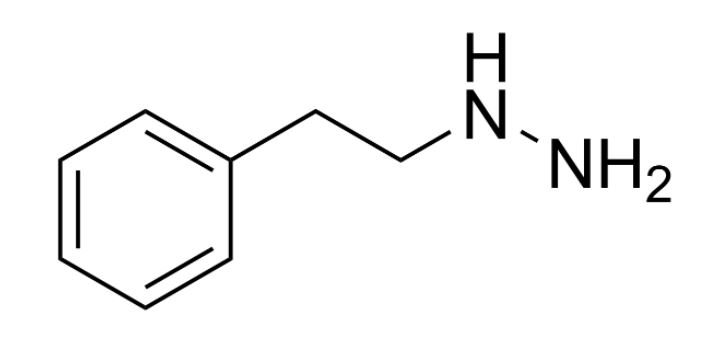Playlist
Show Playlist
Hide Playlist
Monoamine Oxidase Inhibitors (MAOIs) – Antidepressants
-
Slides MAOI Antidepressants.pdf
-
Reference List Pharmacology.pdf
-
Download Lecture Overview
00:01 I'm Dr. Shukle. Let's talk about monoamine oxidase inhibitors today. 00:06 The monoamine oxidase inhibitors are drugs that inhibit the breakdown of norepinephrine and serotonin in the presynaptic neuron. 00:17 This allows more of these neurotransmitters in to the synaptic cleft. 00:21 The increase amounts of norepinephrine and serotonin are stored in the vesicles and then they're eventually released when the nerve fires. 00:30 We have several types of monoamine oxidase inhibitors. 00:34 They can be nonselective or selective. 00:37 The nonselective agents are seen here, there's many of them, there's over 20 MAO-A, MAO-B inhibitors. 00:46 We also have selective agents. 00:49 The monoamine oxidase A inhibitors like maclobemide are some of the earliest antidepressants that we've ever used. 00:58 This particular drug was sold commercially as Mannerix. 01:02 Selective monoamine oxidase type B inhibitors include drugs like selegiline. 01:08 These are also commonly used, we see them still being used today. 01:13 Side effects to these medications are usually due to increase amounts of norepinephrine in the nerve terminals themselves, so this can include peripheral autonomic sympathomimetic effects. 01:25 This can lower your blood pressure and it can also increase your risk of seizures by lowering the seizure threshold. 01:36 Finally, we need to discuss the risks of serotonin syndrome inherent to these medications. 01:40 This process is usually occurs on a patient's switches from an SSRI to MAOI. 01:45 If the initial medication is not given adequate time to be eliminated from the body, before starting the new drug, there can be a synergistic effect on serotonin levels. 01:54 Symptoms of high serotonin can include confusion, fevers, vomiting, sweating, and in some cases even seizures. 02:02 This condition can be life threatening so care must be taken to ensure that this medications aren't accidentally combined by a patient or doctor unknowingly, and ensure that patients follow a strict taper schedule when switching their medications. 02:13 Now, what's up with the blood pressure? I just finished saying that there was more norepinephrine in the synaptic cleft. 02:22 If it's sympathomimetic, it should cause more blood pressure and higher blood pressure. 02:26 Well, in the absence of an indirect sympathomimetic, monoamine oxidase inhibitors actually cause a drop in blood pressure, that's a little bit hard to remember. 02:39 In the presence of an indirect sympathomimetic, monoamine oxidase inhibitors cause a rise in blood pressure. 02:47 Monoamine oxidase inhibitors, I'll say MAOIs from now on, may cause severe hypertension in patients taking things like tyramine. 02:56 Tyramine is metabolized by monoamine oxidase. 03:00 Tyramine is found in things like aged-cheeses, soybeans, beers, and red wine, cured and processed meats. 03:11 So, when you're talking about a wonderful Charcuterie board like this, you're talking about a tyramine overload. 03:19 If you have this kind of a picnic, or a romantic dinner and you're on a monoamine oxidase inhibitor, you can run into the risk of having very high blood pressures in the presence of those drugs.
About the Lecture
The lecture Monoamine Oxidase Inhibitors (MAOIs) – Antidepressants by Pravin Shukle, MD is from the course CNS - Pharmacology.
Included Quiz Questions
Which monoamine oxidase inhibitor is matched with its mechanism of action?
- Selegiline: a MAO-B inhibitor
- Hydracarbazine: a selective MAO-B inhibitor
- Phenelzine: a selective MAO-A inhibitor
- Tranylcypromine: a selective MAO-A inhibitor
- Moclobemide: a non-selective MAOI
Customer reviews
5,0 of 5 stars
| 5 Stars |
|
2 |
| 4 Stars |
|
0 |
| 3 Stars |
|
0 |
| 2 Stars |
|
0 |
| 1 Star |
|
0 |
Hi ! You explain very well it's very understandable! Thank you very much !
1 customer review without text
1 user review without text




